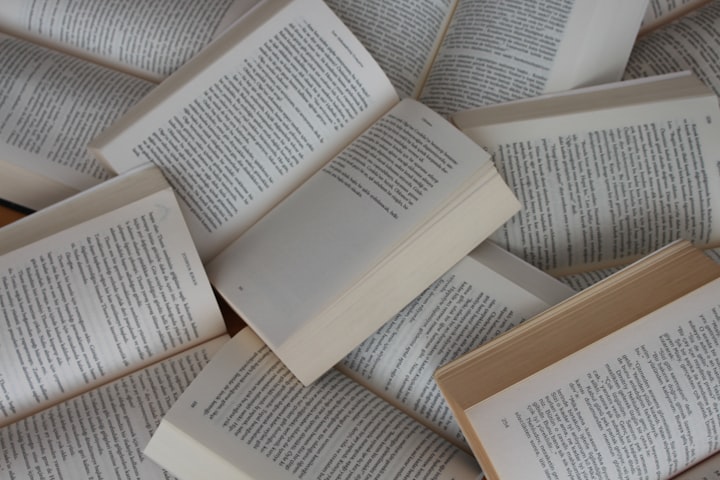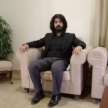
Reading is in fashion.
The Internet has appropriated something that is not fashionable and has given it a 180-degree turn.
Reading is like a new vegetable: it is worth eating because it is good for us.
In fact, it is so good that we should repeat it over and over again as much as possible. More is more! Everyone should read a book a week, no wait, a book a day!
After all, this is why Mark Zuckerberg, Bill Gates and Elon Musk are successful.
The more we read, the smarter we are.
But where to find the time? We have to do it faster and faster still.
Blogs tell us how to read 300% faster in 20 minutes ! Or, How to trick yourself into reading more books!
Speed reading has become a competitive sport: a race to see who can devour the New York Times Bestseller list the fastest.
Reading is one of my greatest pleasures . In fact, I have often shared how to learn from others , which has helped me push Jotform to 4 million users.
But all this about speed, goals and numbers?
The truth about speed reading
Speed reading has only recently caught on, well, speed, but it's been around for decades.
President Kennedy was supposed to be able to read about 1,200 words per minute. Later it was learned that this figure was invented .
According to the 1990 edition of the Guinness Book of Records, Howard Berg could read more than 80 pages of text per minute. But reading specialist Mark Pennington clarified that it was a lie that Guinness did not check.
And that's not all. Research has consistently disproved speed reader claims, and science offers an equally strong rebuttal.
As professor and eye-tracking researcher Keith Ryanair explains, techniques like simultaneous reading of long segments on a page are neither biologically nor psychologically possible, due to the limitation of our foveal vision area.
An entire page cannot be read in one sitting. Zig-zagging in front of it doesn't work because the human eye isn't designed for that.
And those apps that claim to increase speed by displaying one word at a time? The creators say: "only 20%" of the reader's time is spent processing the content while 80% of the time is spent on eye movement.
But there is a fundamental flaw in this logic. We can't stop thinking when our eyes move, so 100% of our time is spent processing content, while our eyes move 10% of the time.
According to psychologist Patricia Greenfield, when the brain deals superficially, less attention and time is allocated for slower, more time-consuming processes such as inference, critical analysis, and empathy.
In other words, we are not giving ourselves enough time to understand the complexity or develop our own opinions.
As reading speed increases, our comprehension decreases.
So speed reading only helps if we want to scan the text: maybe for a shopping list or a seating chart.
But we could not capture information. And this is the whole point of the reading.
O, to quote Woody Allen:
I took a speed reading course where you swipe your finger to the center of the page and I was able to read “War and Peace” in 20 minutes. It was about Russia.
The myth of the 100 books
Even assuming that speed reading doesn't work, we'd still have to address the main question: Why would we want to do it?

I have nothing against reading 100 books a year, if that's a natural pace for you.
People have different reading speeds and different levels of comprehension. But reading to catch up with an arbitrary number on the internet?
First of all, not all books are created equal – thousands of them are not worth reading.
There are books that are exciting to some and garner praise but might bore others to the point of tears.
And there are some that are extraordinary, beautifully written, and insightful. Would they deserve a quick read?
No.
Those books are meant to be pored over, savored, with their pages folded like puppy ears, passed around to friends and passed back to us.
Why should we give one of the greatest pleasures of our lives a KPI, a deadline, or a goal? Our world is too full of rules and benchmarking – do we need to regulate this too?
This is what happens if we read just to read:
“You will retain little or no knowledge”
“You will sacrifice reflection and introspection”
“You will absorb very little”
It is true that reading widely is something that successful people have in common. Successful people are curious about the world they live in.
But it's not about how fast they read. It's about how they read.
Why do we read anyway?

Consider 3 different types of reading:
The first is passive . Scrolling on Facebook. Flipping the pages of a magazine in the doctor's office, clicking on Twitter. This kind of reading happens to you.
The second is practical . Reading with a purpose. Because we want – or need – to learn something. At school, at school or for self-improvement.
The third is for pleasure . Not just fiction, or magazines or pure escapism. Reading for pleasure does not have a category: it is subjective. It happens when there is something that catches your attention: an article, a novel, an autobiography.
Read because you want to, not because you have to.
When you can't put a book down, when your brain bubbles with satisfaction as you turn each page. While he eats, when he takes a shower, on a park bench, standing in the subway, devouring a plot, a theory, a method.
Thinking: “Yes, this is for me”. Being so lost that he doesn't hear the doorbell ringing.
It is this type of reading that increases our attention spans, expands our vocabulary, and allows us to store up golden nuggets of information. We can't help it – when reading is enjoyable – the content stays with us.
But when we read just because we have to, it fades away – the same way we forget what we've learned after a boring test.
(If we read to relax, this does not matter).
But if we're reading 100 books a year just for the sake of self-improvement, it does matter.
Personal development books only have the effect that the action we take after reading them has. All the methodologies and structural frameworks in the world won't impact us if we can't process them properly.
Elon Musk and Co. attribute their success to reading, because they read with purpose, and apply what they learn in a larger context in their careers. They don't plow through a large volume of material like a box that they have to mark "done."
Reading counts when it is retained and put into practice.
As Mortimer J. Adler wrote:
In the case of good books, the important thing is not how many you can finish, but how many touch you in the deepest part of your being and stay with you
In case you choose quality over quantity, here are tips on how you can find books that stick with you:
Try the classics…
Try putting down self-help books for a bit. Most of them are repackaged books from a number of classic books. It is better to start with the initial wisdom and go from there. Choose the best of the best in the topics that interest you. Reading a selection of these will take you far.
… But don't be so strict with yourself.
There is a notion that books are 'guilty pleasures', to be read only at parties or in the privacy of your bathroom. We feel that reading 'isn't working' unless it is somewhat challenging or tedious. Books must impress others at dinner parties.
But reading should feel like a privilege, not a chore.
Life is too short to put up with books you don't really enjoy. Read what you love to read, in the genres you love, from the authors you love.
Be selective
There are going to be books that naturally apply to you and your life more than others. That's fine. Organize a selection of books that make sense to you.
Going deep into a selection of a topic that fascinates you will do a lot more than find yourself immersed in someone else's top 10 books list.
Don't feel compelled to buy a novel just because it made the best-seller list. Follow your nose, and aim to select books in the areas that are relevant and of interest to you.
Read again
I frequently find myself going back and rereading the same books over and over again. It feels like pairs of jeans that are already worn but so comfortable. And every time I reread them, I find something new.
“I don't want to read everything over and over again. I just want to read the 100 greatest books over and over again, source”
If you're trying to expand your knowledge in certain areas, rereading something that inspired and resonated with you is going to have more impact than reading new books that just repeat the same content.
Take notes
We retain information better if we take notes manually. If your book is physical (and not on loan), you can highlight sections, scribble notes. This allows you to process and interpret the content in a more meaningful way.
Join a reading club
Turns out a book club is fun. Why not talk about a book you just read? and hearing other people's opinion about him – it's interesting.
My book club is mixed in terms of genre and reading preferences, so I'm reading books that based on my preferences, I wouldn't really give them a second chance.
So I've either loved them or hated them, and strongly debated. And I've made good friends in the process.
Final Thoughts

In "Bird by Bird: Some Instructions on Writing and Life," Anne Lamott
writes:
For some of us, books are as important as anything else on Earth. What a miracle it is that from these small, flat, rigid squares of paper world after world is unleashed, worlds that sing to you, comfort you, appease you and move you. Books make you understand who we are and how we should behave. They teach us what communities and friendships mean; They teach us how to live and die.
Reading is magical. It's teleportation and telepathy.
He lets us travel through space and time, oceans and continents.
It lets us see inside the brains of the most amazing people on earth. Connect with the wisdom of the past and look to the future.
Reading has many unintended consequences: We hold many interesting perspectives in our minds, we practice listening to others and their opinions, and we realize that we are not always right.
But no one should determine your worth, depending on how much you read or don't read.
Yes, reading educates, increases empathy, encourages us. But it could also just be fun.
So maybe we should stop taking it so seriously, and start enjoying it for what it is: a wonderful hobby – not a shortcut to a high balance in our bank account.
Read slowly. Please read carefully.
But don't read to make yourself successful. Read to make yourself happy.






Comments
There are no comments for this story
Be the first to respond and start the conversation.